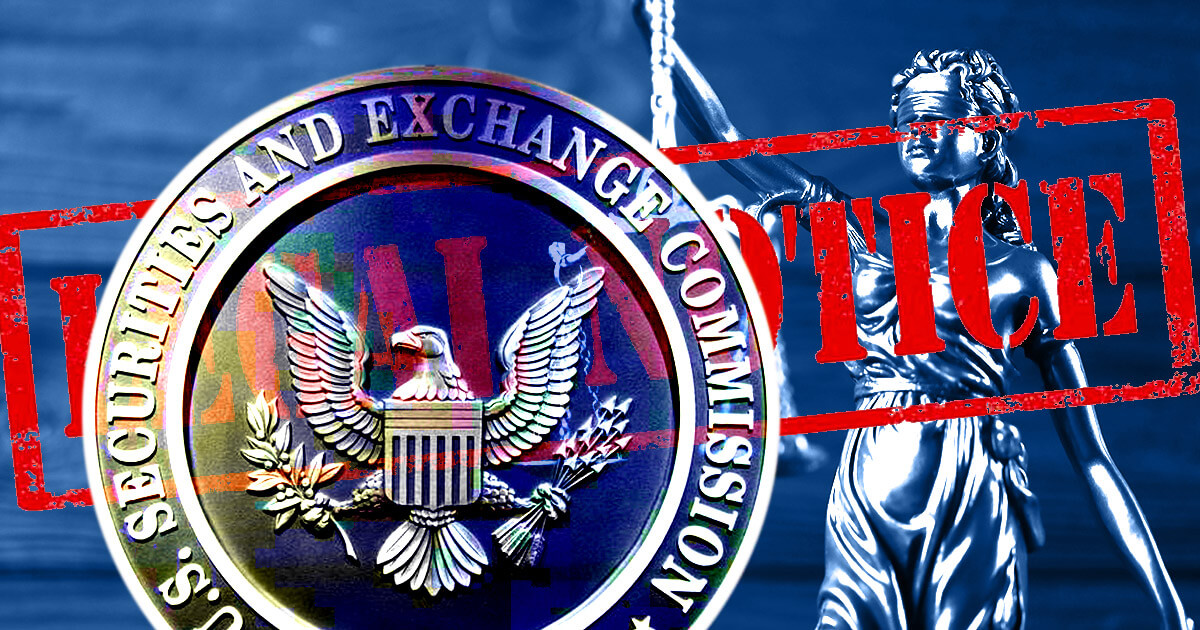Sometimes people file lawsuits not because they think they will win, but because they know the lawsuit is the only way to ignite the kind of conversation that will effect meaningful change.
In recent days CoinbaseCOIN took two important steps to accelerate the conversation on how crypto assets in the U.S. will be regulated. First it responded – and made public its response – to a “Wells Notice” served by the SEC on the company in late March. Then, it took the bold step of suing the SEC, albeit on a “narrow” administrative matter in a U.S. federal court, to underscore the issues it asserts are adversely impacting U.S. residents and their access to and use of crypto.
While acknowledging that the Wells Notice “is not a formal charge or lawsuit,” the Company said “it can lead to one” and outlined several areas of SEC focus including operating an unregistered exchange, clearing agency and broker as well as its wallet offering and staking activities. On each point, its publicly available response made convincing arguments against the SEC’s positions.
The question is what is the long game here – minimize corporate disruption from potentially crippling enforcement actions, delay any type of enforcement action for as long as possible, force a quick turnaround on the agency’s apparent positions contrary to the interest of the Company’s customers, or provide a catalyst for accelerated Congressional action. While SEC Chair Gary Gensler may be long gone by the time any of these issues wind their way through the agency or the courts, in the short term, substantial corporate resources are being deployed in what increasingly looks like war. Or, at the very least a massive offensive to encourage broad scale discussions on the issues, including the formation of the Crypto 435 (whose first opponent may be Elizabeth Warren’s Anti-Crypto Army.). .
As Coinbase is trying to enlist the crypto community through its grassroots efforts to get involved in advocacy, it is also adding some heavy artillery to its front line to carry on the legal offensive. It has hired an ex-Trump Cabinet member and two former federal enforcers. Coinbase’s outside legal team now includes former U.S. Labor Secretary Eugene Scalia, who is a Gibson Dunn partner, and two former enforcement directors—Steven Peikin (SEC) and James McDonald (Commodity Futures Trading Commission), both of whom now are Sullivan & Cromwell partners and who with colleague Kathleen McArthur, filed the Wells response on behalf of Coinbase. Each of the three charges clients more than $2,100 per hour, based on filings the firm made as part of its representation of FTX in the collapsed crypto exchange’s bankruptcy. Jay Clayton, the former SEC chair, is also of counsel at Sullivan & Cromwell, one of Wall Street’s priciest and best-known law firms..
The lawsuit filed by Scalia and his team at Gibson Dunn in the Third Circuit asks the court to compel the SEC to respond to a rule-making petition Coinbase filed last year to address a number of issues raised by the Company. Coinbase makes clear that it “is not asking the Court to instruct the agency how to respond. We are simply requesting that the Court order the SEC to respond at all, which they are legally obligated to.” Coinbase argues that the SEC is violating the Administrative Procedure Act by failing to respond within a reasonable time.
Carol Van Cleef, Washington DC lawyer and CEO of Luminous Group, said in an interview that “Any company suing the SEC faces an uphill battle…even if they win, any outcome on the merits – actual rules – could be years away. The crypto community is seemingly encouraged that Coinbase has gone on the offensive against the much demonized SEC for what the crypto community perceives as years of regulation by enforcement. However, Coinbase is not directly going on the offensive to attack the issue that most likely will underlie future litigation against it if or when its discussions with the SEC reach that point.”
In the meantime, shareholders of Coinbase may question the utility of the lawsuit and whether it is more of a distraction for the coming battle whose lines appear to be drawn in the Wells Notice. Should Coinbase be using funds for this purpose? There is precedent for shareholders suing Coinbase. In 2021, a derivative suit was filed in Delaware over executive mismanagement against CEO Brian Armstrong, CFOCFO Alesia Haas, and Chief Account Officer Jennifer Jones. Additionally, directors Fred Ehrsam, Marc Andreesen, Kathryn Haun, Gokul Rajaram, and Fred Wilson were listed as defendants. The lawsuit sought to have the executives pay damages to Coinbase itself. Various other lawsuits have been filed against Coinbase regarding its IPO, including one in New Jersey and one in the Northern District of California.
What is clear from all of this is that the battles to gain greater real or perceived regulatory clarity will continue to use resources on both sides.
Follow me on Twitter or LinkedIn.
Credit: Source link















































